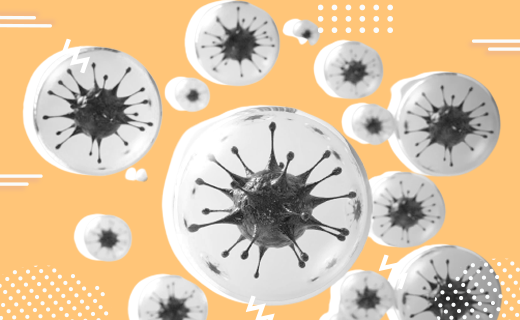As we are all hoping for the COVID-19 pandemic to end, the situation seems different in India as there is a sharp rise in cases with a rare infection of fungus. India has recorded over 12,000 cases of black fungus, with the maximum number of cases in Maharashtra, Gujarat, Andhra Pradesh, Madhya Pradesh, and Telangana. The fatality rate of the fungal infection is high, and if treated, the disease has a mortality rate of 50%.
According to the Associated Press, the number of deaths caused by the black fungus is around 300. The government has allotted 80,000 vials of liposomal amphotericin B injection to all the States/Union Territories and central institutions on 27th May. But, there is a crunch for antifungal injections. It is not a new disease or contagious, but the high mortality rate and the shortage of antifungal medications have made it more daunting.
Table of Contents
Black Fungus
Vulnerable Groups
The first reported black fungus is most commonly seen in COVID-19 patients with diabetes, kidney disorders, and those taking steroids for an extended period. Normally, this fungus does not affect you. But given its opportunistic nature, it infects people with a weak immune system by invading their blood vessels, eventually resulting in the death of body tissues. Using immunosuppressants like steroids weakens your immune system and makes you susceptible to black fungus.
Symptoms
- Blurred vision
- Discolouration around the nose, chest, eye, and facial pain
- Breathing difficulties
- Vomiting, bleeding nose, and coughing blood in some severe cases
Treatment
Doctors administer antifungal medicines like amphotericin B every day for eight weeks to treat the infection. Often, surgery is necessary to cut away dead or infected tissue.
Precautions
- Maintain good hygiene and follow proper sanitation methods
- Ensure high standard of hygiene when using and dispensing medical equipment
- You must use steroids only for those who need oxygen. It is inappropriate to use over-the-counter steroids or higher doses of steroids
- High blood sugar level leads to a high acidic environment, making it easy for the fungus to enter. So, it is essential to maintain normal blood glucose levels
- It is essential to take certain precautions even after recovery from the virus, so do regular workouts, maintain oral and nasal hygiene, and avoid areas bound with fungi
White Fungus
Vulnerable Groups
Second, the white fungus may affect several internal organs such as the nails, stomach, kidneys, lungs, brain, and skin. The people likely to catch the disease are the same as those with mucormycosis, with a weak immune system, including diabetic and cancer patients.
Symptoms
- Whitening the tongue
- Diarrhoea
- Cough
- Reduced oxygen levels
Treatment
White fungus is treated with regular antifungal medicines, unlike mucormycosis.
Precautions
- Proper maintenance of the immune system is essential as people with low immunity systems are affected by fungal infections
- Limited usage of steroids can ensure prevention from fungal attacks
Yellow Fungus
Vulnerable Groups
Last, the yellow fungus hasn’t affected many people yet but is more deadly than the other two. As various fungal infections spread when a person inhales moulds, the yellow fungus spreads via high humidity levels or old/contaminated food. Like the other two, people with an underlying medical condition or a weak immune system are at high risk of contracting the fungus.
Symptoms
- Unusual weight loss
- Loss of appetite
- Pus leakage from the wounds
- Sunken eyes
- Lethargy
- Fatigue
Treatment
Like mucormycosis, Amphotericin B injections work to treat the yellow fungus.
Precautions
- Keep the surroundings clean and maintain a hygienic environment
- Proper disposal of faeces or contaminated food can prevent bacteria and fungus
- As high humidity increases the risk of infection, doctors advise maintaining standard room humidity
As there is an increase in the number of fungal infection cases, the government has declared it an epidemic in India. It mainly affects the immunodeficient patients recovering from COVID-19. It is advised that patients with symptoms have to be diagnosed early to stop the disease from spreading. There are certain cases where doctors surgically removed the patient’s eye to stop spreading the infection to the brain. As the severity of the illness unfolds, it is essential to maintain proper hygiene and strengthen your immune system.
This article is prepared in consultation with Dr. Amrit Jha (MBBS, MS Ortho) & Dr. Darshan Sheth (MBBS, MHA).
Follow us on our LinkedIn Page to catch regular updates on COVID-19 and Healthcare topics.




